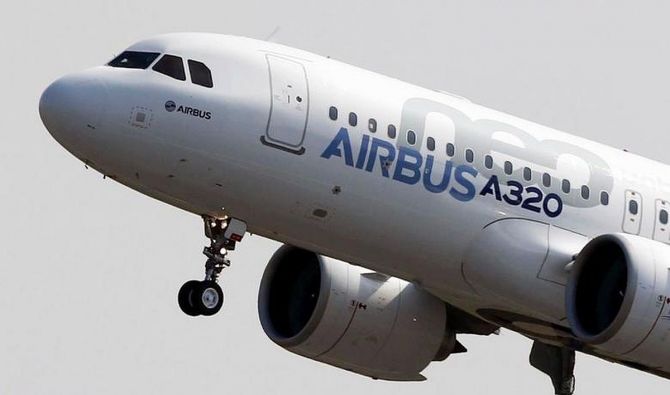Air India significantly altered the composition of the aircraft order it placed earlier this year with Airbus, the European plane manufacturer has said.

In February, Air India had placed the world’s second-largest single-tranche aircraft order for 470 planes: 250 with Airbus and 220 with Boeing.
In July, Airbus disclosed an order comprising 70 A321neo, 140 A320neo, 34 A350-1000, and six A350-900 aircraft for Air India.
Late on Tuesday, Airbus revealed that Air India’s order was now for 140 A321neo, 70 A320neo, 20 A350-1000, and 20 A350-900.
“We regularly review our orderbook based on business requirements and opportunities, and exercise contractual flexibilities as appropriate,” an Air India spokesperson said in response to queries by Business Standard.
Aviation industry sources said that the aircraft order could have been altered considering the need for planes and supply chain issues affecting the delivery schedule. Air India has 127 aircraft in its fleet and 15 of them are grounded.
The A321neo, Airbus’ longest-fuselage member in the best-selling A320 narrow-body aircraft family, can accommodate 180 to 220 passengers in a standard two-class layout and up to 244 in a higher-density arrangement.
While the A320neo has a range of 6,300 kilometers, the A321neo has a range of up to 8,700 kilometers.
The extensive range of the A321neo could facilitate the airline in reaching a broader array of international destinations, aligning with Air India’s primary focus on the international market.
Air India has already received four out of the 20 A350-900s from Airbus, but they are undergoing painting in the airline’s livery.
Sources indicate that the airline may have chosen more A350-900s as it believes that the aircraft adequately fulfils its requirements.
Although the A350-1000s offer a longer range, they also entail additional costs.
Furthermore, supply chain disruptions are impacting the entire aviation industry, and each airline is striving to secure a reliable delivery schedule.
Air India’s decision to modify the aircraft order may align with this consideration, according to sources.
Campbell Wilson, Air India’s chief executive officer and managing director, last month told Business Standard in an interview that India was a huge travel market but much of the international market was not traveling on Indian carriers, in part because Air India and other Indian carriers either haven’t had the capacity investment or product investment or haven’t built the reputation.
“Therefore, so much of the market is travelling via somewhere else.
"And if we can get better, all that market will come back to us because I think there is a great desire for an Indian carrier to be good enough.
"That market size is there. If we do our job better, we can capture it,” he had said.












 © 2025
© 2025